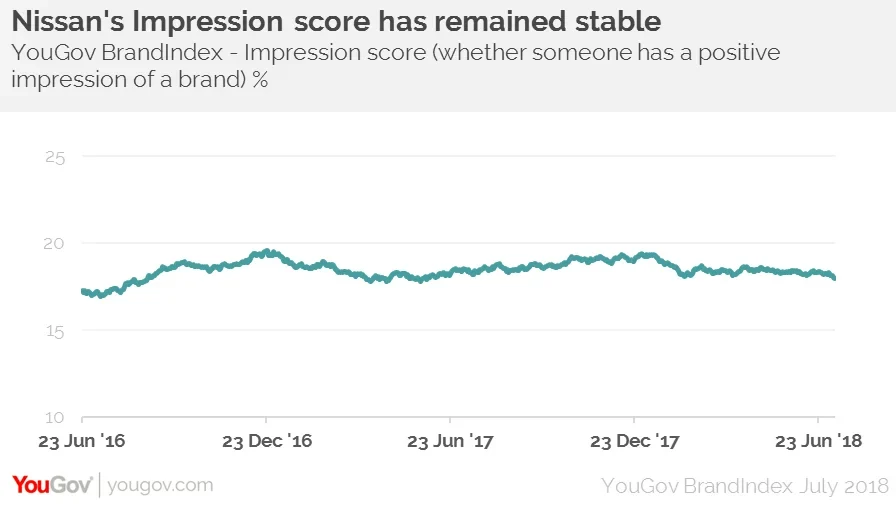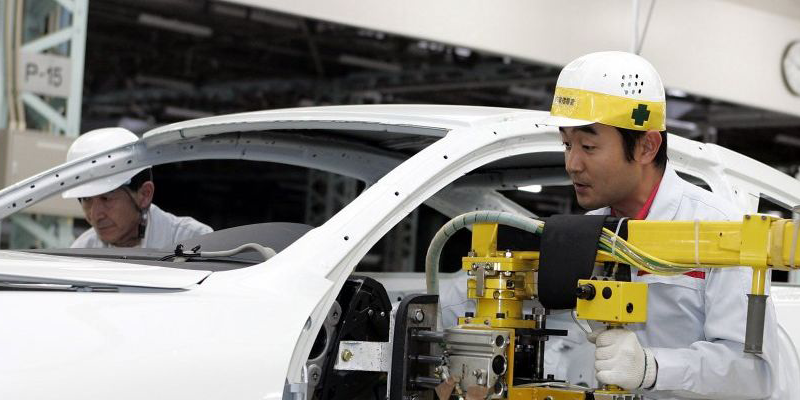This week, car maker Nissan said it found emissions and fuel economy data had been falsified at some of its factories in Japan.
Nissan has not revealed how many cars were involved, but did state that emissions and fuel economy tests had “deviated from the prescribed testing environment”. However, it maintained that emission and fuel economy results were still within required limits on all vehicles.
In previous columns, I have discussed similar issues within the automotive industry including BMW’s recent recall and Volkswagen’s emissions scandal back in 2015.
Using YouGov BrandIndex and looking specifically at UK data, we can see how Nissan has fared in the lead up to the news, and how its brand perception might be affected by it.
Most of the car manufacturer’s brand health metrics have stayed relatively stable over the past two years. For example, it’s impression score has remained around the 18-point mark.
This is despite the fact that Nissan has regularly been in the news with regards to its post-Brexit plans, with particular focus on its main UK hub in Sunderland.
Among the general public, Nissan has a solid purchase consideration score (whether someone would consider buying a Nissan when they were next in the market to buy a car) of 15. While the score suggests that Nissan is in a good position, the data does show that it is still narrowly outstripped by the likes of Vauxhall (17) and Ford (28).

Nissan may well be looking to the past in order to help it through this period. Our data shows that during Volkswagen’s high-profile emissions crisis in 2015, the German car maker’s Impression dropped dramatically – 64 points – from 38 to minus 26 in just 10 days. However, Volkswagen began to recover when the news agenda moved on, and has managed to slowly rebuild its reputation in the subsequent months.
While Nissan’s brand perception metrics may fall, it’s doubtful we will see a similar decline to that of VW. Certainly the brand can be grateful that its negative headlines coincide with a particularly dramatic news week in the UK.
This article originally appeared in City A.M.
Image Getty









